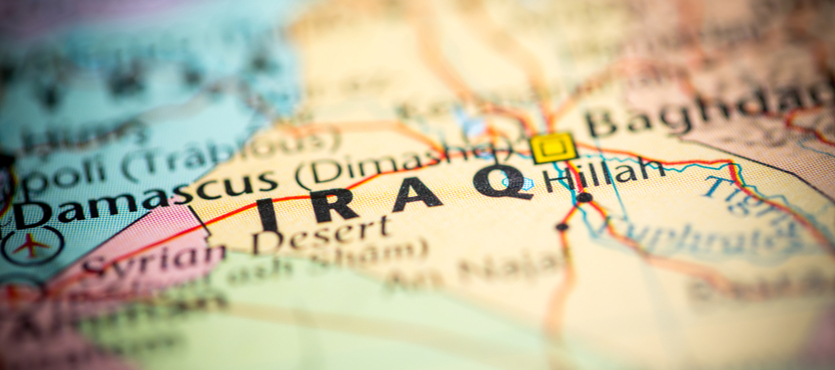The largest political party in the war-torn country nominated longtime government minister Mohammed Shia al-Sudani, whom some people claim is a puppet, to be the country’s next prime minister.
Individual leaders of the Coordination Framework informally endorsed al-Sudani in various tweets and statements. Noticeably absent was the endorsement of Nouri al-Maliki, head of the State of Law Coalition, which has the largest bloc in the Coordination Framework. However, his party has endorsed al-Sudani. An anonymous source claims al-Maliki unsuccessfully tried to block al-Sudani’s nomination, on the grounds that he is a figurehead for former politico Muqtada al-Sadr.
Currently, al-Sudani is a member of the parliamentary committee supervising the government program and the Strategic Planning Committee. He served previously as minister of human rights from 2010 to 2014, and as minister of labor and social affairs from 2014 to 2018. He was also acting minister for the Ministry of Industry, Ministry of Trade, Ministry of Finance, and minister for the Ministry of Migration and Displaced, and Ministry of Agriculture.
Situation in Iraq
American combat forces withdrew from Iraq in 2011. 10 years after that move, the stable democracy that former President George W. Bush envisioned remains elusive.
Incidentally, Bush was not the first politician to harbor such hopes. Progressive icon Woodrow Wilson thought the same thing would happen after World War I. Wilson predicted that if Kaiser Wilhelm left, a stable and permanent democracy would take root in postwar Germany. Given the postwar rise of Adolf Hitler, that prediction was obviously way off base.
Today, former Iraqi strongman Saddam Hussein is long gone. Permanent democracy, although not entrenched, is certainly not a pipe dream in Iraq. So, from that perspective, Bush is at least ahead of Wilson.
A peaceful and stable power transfer would help. In 1801, incoming Democratic-Republican President Thomas Jefferson had an armed military escort when he took the reins of power from Federalist incumbent John Adams. There had never been such a power transfer before, and no one was sure what would happen. Many people feared the worst, and that the American democratic experiment would end before it began. America made it over that hump, and hopefully, Iraq can make it over this one.
If al-Sudani does indeed get the nod, he will take control of a country that is on slightly more stable footing than it was four years ago.
In July 2018, widespread anti-government protests began in Baghdad and Najaf before spreading to other parts of the country. Demonstrators demanded, among other things, an end to government corruption and Iranian influence. These protests continued until the next year. A government crackdown against the protestors killed about 500 people.
In December 2019, the political climate suddenly shifted. 30 people died, including an American private military contractor, in a rocket attack the government blamed on an Iraninan-backed militia. In retaliation, the United States bombed five Kata’ib Hezbollah militia positions in Iraq and Syria, killing some two dozen people. In retaliation for that, a Shia militia group attacked the U.S. embassy in Baghdad.
The United States and Iran almost came to blows in 2020, with Iraq caught in the middle, when a U.S. drone strike killed Qasem Soleimani, the number-two man in Iran. However, cooler heads prevailed.
In November 2021, Muqtada al-Sadr’s Shia nationalist party became the largest group in parliament. However, with only seventy-nine of the 329 seats, it is nowhere near a voting majority. Al-Sadr later withdrew after several failed attempts to form a coalition government.
Contractors in Iraq
So, although the civil and international unrest has died down, political unrest remains. As long as that unrest remains, contractors will remain as well. If the country falls apart, the thousands of Americans who died during the controversial Iraq War will have died for nothing.
Rebuilding and security are the two main priorities for contractors in Iraq. These two priorities are closely related.
Currently, rebuilding focuses more on the government infrastructure than the physical infrastructure. Iraq needs a government that can manage the people and an army that can fend off neighborhood bully Iran. Contractors are vital in both areas.
Many overseas contractors carry laptops instead of machine guns. These contractors help government ministers and bureaucrats do their jobs. The more efficient these individuals are, the less likely a return to the bad old days of a military strongman becomes.
In burgeoning democracies like the early 1800s United States and early 2020s Iraq, security is paramount. Sometimes, contractors provide security themselves. They man checkpoints, patrol neighborhoods, and perform other vital duties. More importantly, contractors train government security forces, so they can stand on their own two feet.
Injury Compensation Available
Whatever tools they carry, whether they are laptops, machine guns, or wrenches, the Defense Base Act provides important financial benefits when these individuals are injured. Let’s break down some key DBA eligibility requirements.
First, the injury must occur in an overseas war zone. “Overseas” is not the same thing as “foreign.” Guam is an overseas area, even though it’s a U.S. territory. Guam is also a war zone, although bullets are not flying there. Any territory with any U.S. military presence, no matter how small that presence may be, is a war zone for DBA purposes.
Additionally, there must be a nexus (indirect connection) between the deployment and the injury. Assume Tony is shopping in a street market when he is caught in a violent anti-government protest. His injury is not directly related to his deployment. However, there is an indirect relationship. Tony was in that place at that time because of his contractor duties.
Finally, the victim must sustain a tangible injury. Usually, the Defense Base Act does not compensate individuals for emotional distress. There is a difference between a tangible injury and a visible injury. Post Traumatic Stress Disorder is a tangible brain injury. It is just not a visible injury.
For more information about DBA procedure, contact Barnett, Lerner, Karsen, Frankel & Castro, P.A.

